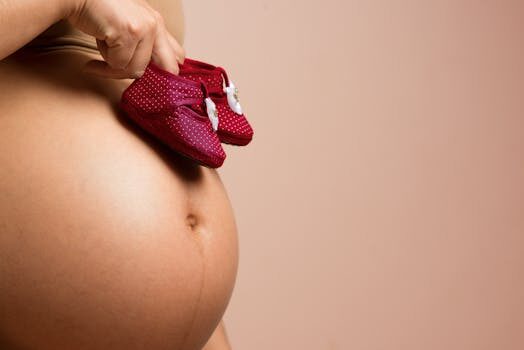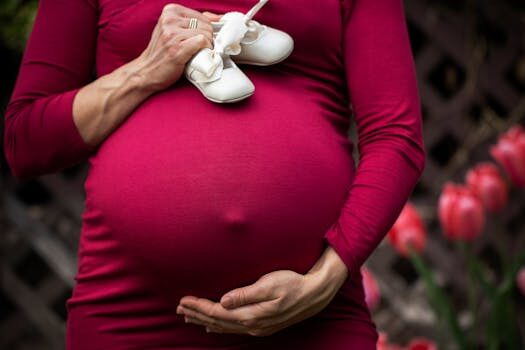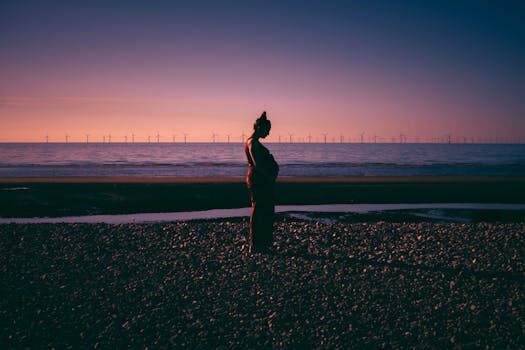Inside pregnancy: weeks 1 to 9

The journey of pregnancy begins with significant changes, both physically and emotionally. During the early weeks, expectant mothers experience rapid developments that are crucial for fetal growth. Understanding what happens during these weeks can provide reassurance and clarity during this transformative period.
From conception to the formation of vital organs, the initial weeks are packed with milestones. This article delves into what to expect during the first nine weeks of pregnancy, offering insights into the stages of fetal development and changes in the mother’s body.
What happens during weeks 1 to 2 of pregnancy?
During the first two weeks, pregnancy is often calculated from the first day of the last menstrual period, even though conception typically occurs around the end of this period. This phase is essential for understanding the timing of fetal development.
In the first week, the body prepares for ovulation, while the second week sees the release of an egg, which travels down the fallopian tube. If sperm fertilizes the egg, the fertilized egg begins its journey to the uterus, where it will eventually implant.
It's crucial to be aware of the signs of early pregnancy, such as missed periods, which often become evident during this time. Engaging with trusted resources, like BabyCenter, can provide valuable guidance.
What developments occur during weeks 3 to 4?
Weeks three and four mark significant changes as the fertilized egg implants itself into the uterine lining. This process is vital for establishing pregnancy. During this time, hormonal changes begin to affect the mother's body.

As the embryo develops, it forms three layers: the ectoderm, mesoderm, and endoderm. These layers will later differentiate into essential organs and tissues. Expectant mothers may start experiencing symptoms such as fatigue, nausea, or heightened senses as hormone levels fluctuate.
- Implantation of the embryo occurs.
- The placenta begins to form, supporting the growing fetus.
- Hormonal changes may lead to early pregnancy symptoms.
How does fetal development progress in week 5?
By week five, significant growth occurs as the embryo takes shape. The heart starts beating, and the beginnings of the nervous system begin to develop. This week is crucial for fetal growth, as vital structures start forming.
Although the embryo is still very small, the changes are dramatic. Many mothers report early signs of pregnancy, including mood swings and food cravings. It’s also common to experience morning sickness during this time.
Understanding these developments is key, as they lay the groundwork for future growth. Parents should consider scheduling their first ultrasound, which can provide early images of the developing baby and confirm the due date.
What changes can be noticed in week 6?
Week six is an exciting time as many women may receive their first ultrasound. During this week, the embryo measures about 1/4 inch long. The brain and spinal cord continue to develop, and basic facial features begin to emerge, marking a crucial point in fetal development.
Expectant mothers may notice more pronounced symptoms, such as fatigue and nausea. These changes are a result of the body adapting to support the growing fetus. Emotional fluctuations may also be common as hormone levels shift.

- Increased hormone production leads to physical and emotional changes.
- Heartbeat can often be detected via ultrasound.
- Changes in appetite and food preferences may occur.
What to expect in week 7 of pregnancy?
During the seventh week, the embryo continues to grow rapidly. By now, the limbs are starting to form, and tiny fingers and toes may be visible on an ultrasound. This week is pivotal in inside pregnancy: weeks 1 to 9 baby development.
Many mothers report an increase in pregnancy symptoms during this time. It's essential to stay hydrated and maintain a balanced diet to support both the mother's and the baby's health. Regular check-ups with a healthcare provider can help monitor the health of both.
Week seven is also a good time for parents to begin considering prenatal vitamins and their long-term health benefits. These supplements can provide essential nutrients for fetal development.
How is week 8 significant for fetal development?
Week eight brings further developments in the fetus's growth. The embryo is now referred to as a fetus, and it begins to resemble a tiny human more closely. Major organs, like the heart and kidneys, continue to develop and refine.
During this week, the formation of the placenta becomes more pronounced, and it starts to take over the production of hormones essential for maintaining pregnancy. Expectant mothers may notice changes in their bodies, including weight gain and a growing belly.
- Fetal organs become more complex and functional.
- The placenta actively supports the fetus with nutrients.
- Pregnancy symptoms may peak, requiring self-care strategies.
What milestones are reached in week 9?
By week nine, the fetus has developed significant features, including eyelids and external ears. This period is marked by rapid growth as the fetus begins to move, although the mother may not feel these movements yet. This week is crucial in the inside pregnancy: weeks 1 to 9 fetal stages.

Many women find that their pregnancy symptoms, like nausea and fatigue, may begin to subside as they approach the end of the first trimester. It's essential to continue with healthy habits to support fetal growth and overall well-being.
Week nine is also a great time for expecting parents to start thinking about birth plans and parenting classes. Preparing for the journey ahead can help ease anxieties and foster a supportive environment.
Questions related to inside pregnancy: weeks 1 to 9
What does a 1 week pregnancy look like?
In a one-week pregnancy, the woman may not yet realize she is pregnant. This week typically involves the preparation for ovulation, which can lead to conception. Although the embryo has not yet formed, hormonal changes may begin to occur, setting the stage for pregnancy symptoms.
Women may notice subtle changes in their bodies, like slight cramping or spotting. However, it is often too early for any significant signs of pregnancy to be evident. It’s important to track the menstrual cycle closely during this time to identify potential pregnancy.
Is week 9 the hardest week of pregnancy?
While every pregnancy is unique, many women find that week nine can be challenging due to increased symptoms such as fatigue and morning sickness. This period marks a transition as the body adapts to the growing fetus, often leading to heightened emotions and discomfort.
However, many women also report a turning point as they approach the end of the first trimester, with symptoms starting to ease. It’s essential to maintain open communication with healthcare providers to manage any concerns during this time.

What happens in week 1 of pregnancy?
Week one of pregnancy is largely characterized by preparation for ovulation. Women may not be aware they are pregnant yet. During this week, the body is gearing up for the release of an egg, which is essential for conception. Tracking ovulation can help women better understand their fertility.
As the menstrual cycle progresses, hormonal changes will begin to signal the body’s readiness for potential pregnancy. This week serves as an important foundation for what is to come.
What's happening in week 9 of pregnancy?
In week nine, the fetus undergoes remarkable growth and development. Key milestones include the formation of facial features and the beginning of limb movements. Expectant mothers may start feeling the emotional and physical strains of pregnancy as the body transforms rapidly.
This week is significant for understanding fetal health and development. Engaging in prenatal care and staying informed about the changes can help parents navigate the journey ahead with confidence.